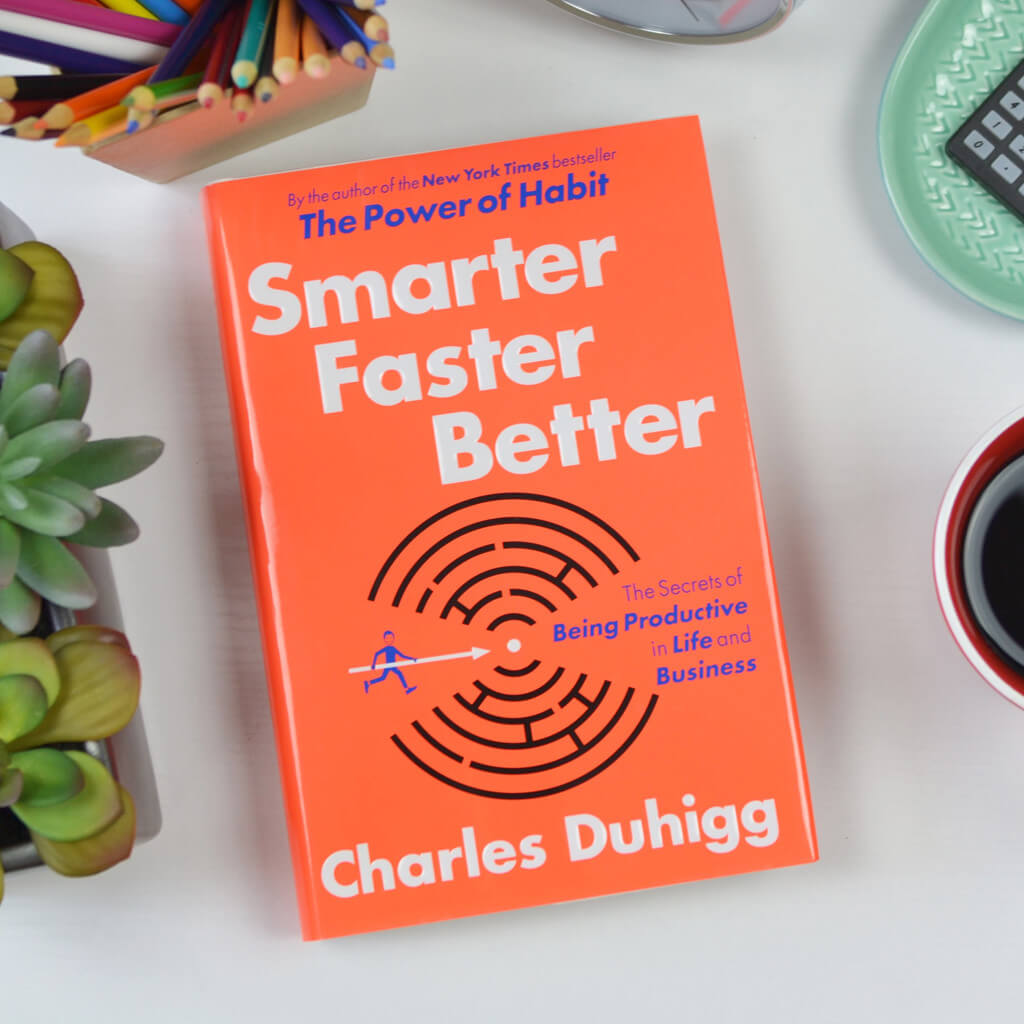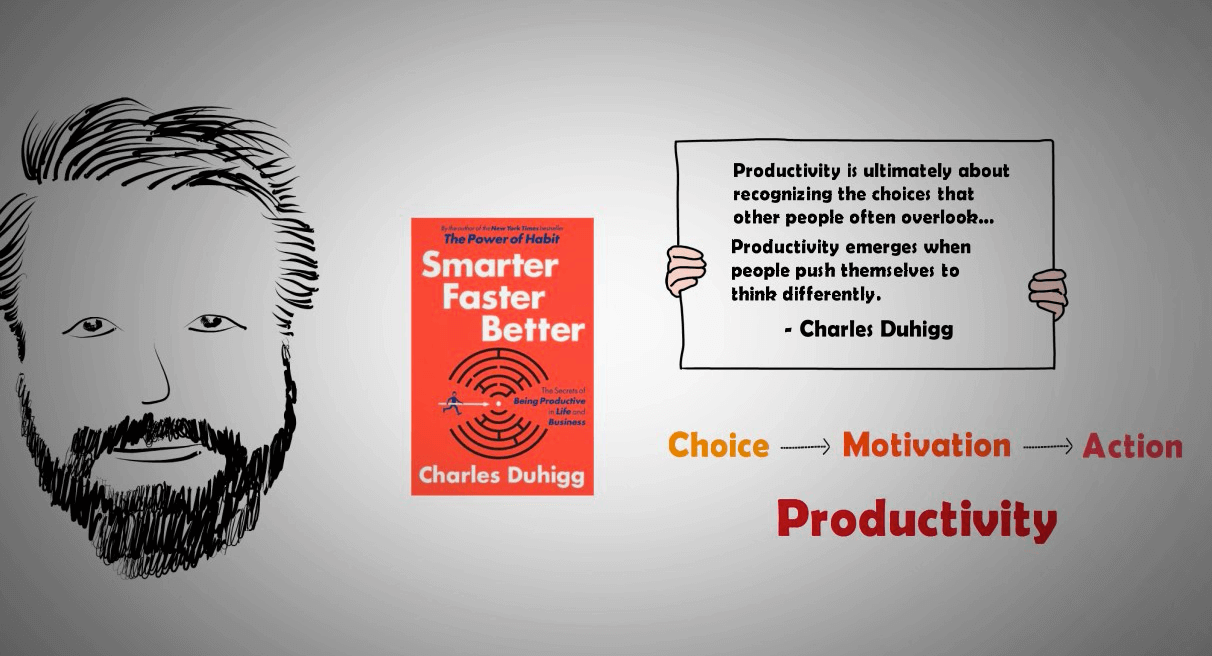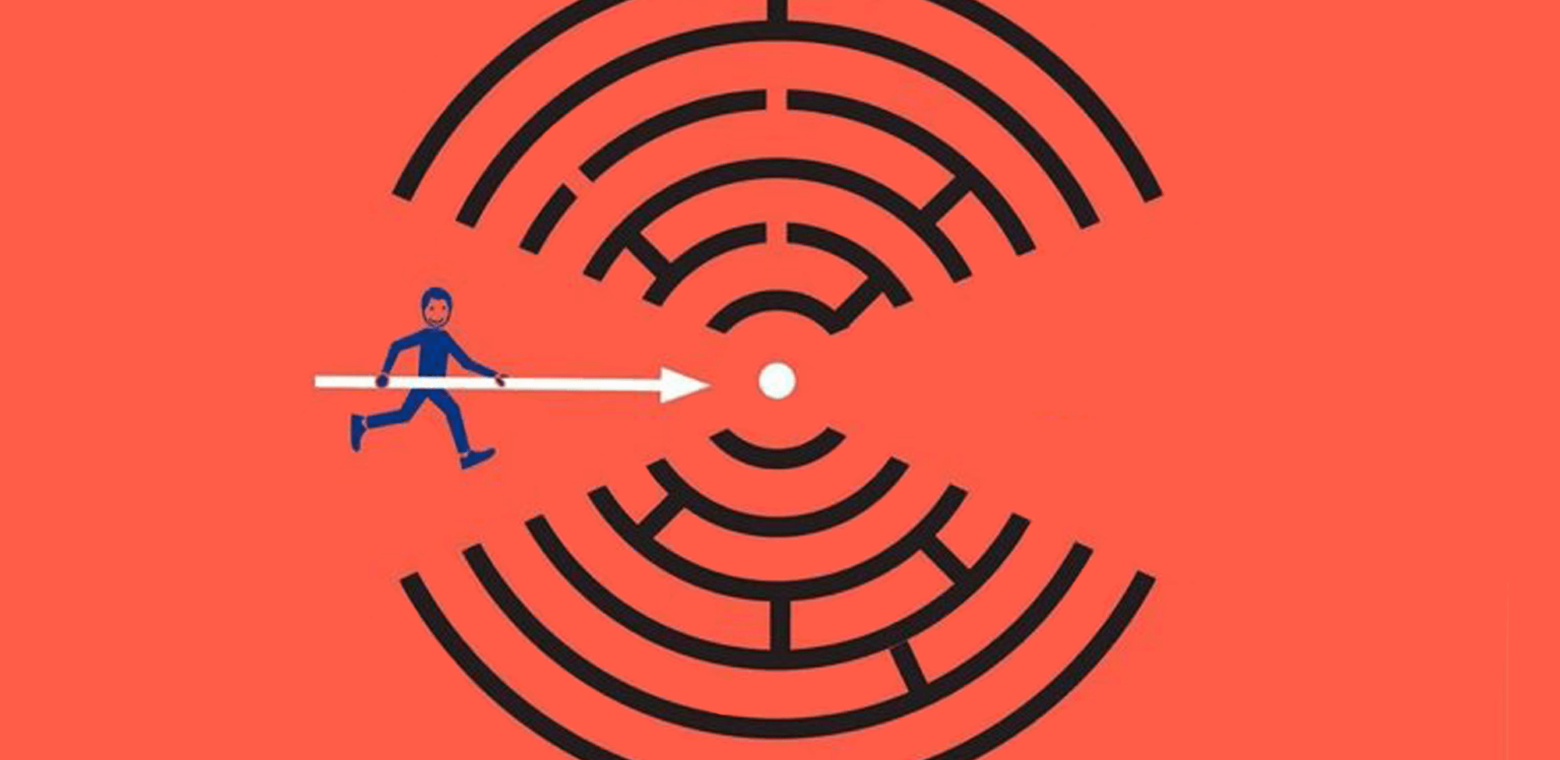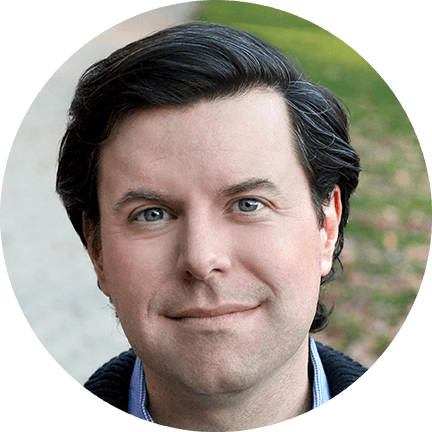NYTimes bestselling author Charles Duhigg already revolutionized the way we think about our habits thanks to his work on The Power of Habit. Now, he’s going after productivity. In his newest book Smarter Faster Better Duhigg investigates why some people are simply better at getting more done with the same amount of time as anyone else.
We sat down with him to unpack some of these productivity patterns and hopefully learn the secret to truly firing on all cylinders:
You’ve spent months interviewing experts on this topic of getting things done. So what, in your opinion, is the definition of productivity?
Productivity is not something that has an objective standard; productivity is what people define as being helpful to them. Productivity changes from day to day and person to person and place to place. A productive Saturday looks a lot different than a productive Tuesday.
At the core of everything we know about the science of productivity is that spending time figuring out what productivity really means for you is the first step to really becoming productive.
What productivity really means is: you know what your goals are and you get closer to those goals without feeling like you’re wasting effort and time. Instead, you feel like you are doing the work that matters to you most at the moment you most want to do it, without having to make huge sacrifices along the way.
“At the core of productivity is the feeling that you are doing the work that matters to you most at the moment you most want to do it, without having to make huge sacrifices along the way.”
-Charles Duhigg, NYTimes Bestselling Author
In Smarter Faster Better you assert that we are experiencing an economic shift akin to the Industrial Revolution. Does that change how we think about productivity?
Yes. We are living through this economic revolution that most economists agree will be as profound as the Agrarian Revolution or the Industrial Revolution in terms of how we live, and work, and how our social lives function. And what happens is during each economic revolution is that the definition of productivity is actually what’s being revolutionized.
Before the Industrial Revolution the most important unit of productivity was the hour. How did you spend your hour? And the best way to be productive before the Industrial Revolution was to simply own land. If you owned land and had access to cheap labor, you had a whole bunch of other people’s hours to apply to that land. So you were super productive and you were super successful and rich, even if you were sitting around drinking gin and tonics all day.
 The Industrial Revolution changed all that. All the sudden, simply spending hours on a task does not matter as much as how much smarts you bring to that task. Because if you can invent a machine that can work as fast as five humans, hence this machine is doing the task more efficiently, then it doesn’t matter if you have more hours. What matters is you have more machines. More clever machines, at that. Maybe it’s not even a machine you need, maybe you just need to lay out your factory a different way, like an assembly line, and you will start producing faster.
The Industrial Revolution changed all that. All the sudden, simply spending hours on a task does not matter as much as how much smarts you bring to that task. Because if you can invent a machine that can work as fast as five humans, hence this machine is doing the task more efficiently, then it doesn’t matter if you have more hours. What matters is you have more machines. More clever machines, at that. Maybe it’s not even a machine you need, maybe you just need to lay out your factory a different way, like an assembly line, and you will start producing faster.
And right now, we’re living through this economic revolution, whether you call it the “knowledge revolution” or the “technology revolution” something is happening right now that is changing the definition of productivity. At the core of that is the debate over what productivity really is. People have to take more agency in deciding for themselves what productivity really is.
How does this current revolution differ from what we’ve seen before?
There’s this tendency to say things like, “In an earlier time, things were easier.” But the truth of that matter is that people have always struggled with productivity.
I don’t think this feeling of being overwhelmed is unique to this age. What I do think is unique to this age is the number of ways that we can be distracted, or the different channels for “busyness” have now exploded. That means it’s easier to feel overwhelmed and feel busy.
So we need to unbundle the notions of productivity and busyness. Even in the 1950s, if you were busy eight hours a day that probably meant you were productive for eight hours of the day. And today, even if you’re busy 14 hours a day, you might not ever get anything important done.
The number of ways that we can be distracted, or the different channels for “busyness” have now exploded. That means it’s easier to feel overwhelmed and feel busy.
It’s not that humans are ill-equipped for this. It’s that change is both good and hard. And you don’t get to choose when you’re born and all of us are living through an economic revolution, which is exciting but also anxious.
And you can control that anxiety by learning about productivity: how to make yourself more productive, how to think about productivity, by learning how to take control of the choices you’re making. To build the habits to help yourself think more deeply.
How do you feel about productivity tools? Yay or nay?
Email was the original asynchronous coordinating device. The benefit of email is that you can send a message to someone and they can reply to it when they have a minute, as opposed to being available when you call. All of us can agree there are some huge upsides to that. When I’m sitting in the airport I can send messages to my team and say, “Hey have we thought about this? Let’s try and get on the same page about [x] project.”
That being said, I don’t think there’s anyone in the world who would say that email is an unambiguously good gift to humanity. It drives most of us crazy.
One of the reasons we use Trello is I travel a ton and our team is quite distributed. I use Trello for my podcast for the New York Times.
Making a podcast is not my main job. There might be a week that goes by that I don’t see the people with whom I’m working on this. So the reasons we use technological solutions like Trello and Slack is they help us organize and help us to make that time productive. If I’m sitting in an airport and it’s 10:30 at night, I can’t really call someone because it’s too late. But I can still make that time useful and productive by relying on an asynchronous tool like Trello.
In your book you have a great chapter on working in groups, with examples from Google. How does productivity differ when it comes to working in a team or group environment?
A lot of it has to do with process. It’s about creating this atmosphere where people can maintain their individuality, and they can voice concerns and criticisms and new ideas and crazy thoughts, without worrying that it’s going to have these consequence of pissing everyone off on the team or alienating the person with the idea.
What Google found, and this is backed by science, is that there is this group norm known as psychological safety. Psychological safety is this idea that you can bring your full self to work, and you can be you, and the group will hear you being you and not bristle against it. The group will hear and absorb your thoughts and make them better.
There are two ingredients that make psychological safety more likely: You have to create a culture where everyone at the table is speaking up. It has to be an environment where everyone feels like they are participating in the conversation.
You also have to have this other component called ostentatious listening. Simply listening to someone often isn’t enough. You have to show them you’re listening by doing things like picking up on nonverbal cues, repeating what they said to you, complimenting their idea, or taking their idea and building on it.

So all this said, what is the *true secret* to productivity?
A huge part of it is exposing yourself to the knowledge of alternative ways of thinking that are possible.
Smarter Faster Better is built around this basic idea that the science tells us most productive people are not that way because they work harder, or they sacrifice more, or they’re superhuman, or they’re crazy smart.
They’re more productive because they develop mental habits, what psychologists sometimes call “cognitive mental routines” that push them to think more deeply about the choices they’re making. The best way to learn how to think better is to expose yourself to more ideas, and more specifically, lessons that explain to you how to think differently and expose you to the habits around how to think differently on a regular basis.
The literal secret to productivity is someone saying, “Oh, I never thought about it that way.”![]() Tweet this
Tweet this
Next: How To Boost Your Personal Productivity: A Complete Guide









































